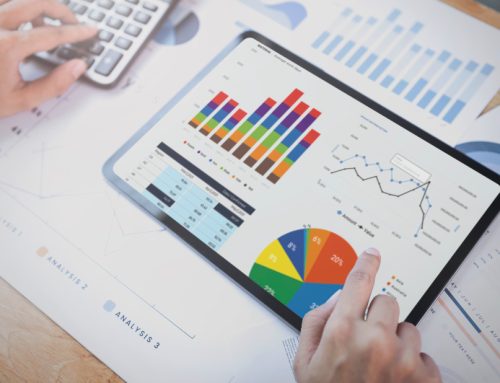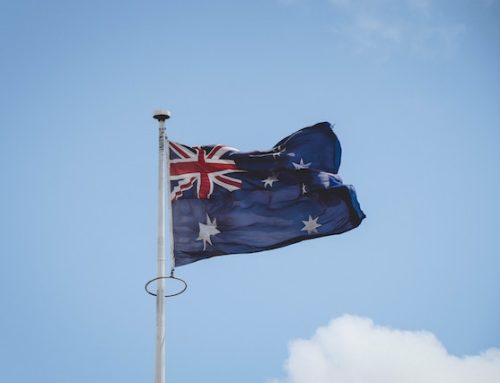February 14, 2023
Date: 09/02/2023
Number: VUK-150 / 2023-1
Republic of Türkiye
MINISTRY OF TREASURY AND FINANCE
Presidency of Revenue Administration
TAX PROCEDURE LAW CIRCULAR/150
Subject: The tax consequences of providing free housing services to earthquake victims in Türkiye, and the document layout in fuel sales made in earthquake-affected provinces
Date: 9/2/2023
Number: VUK-150 / 2023-1
- Introduction:
The subject of this circular is to clarify the situation of free accommodation services to be provided to earthquake victims in the face of tax laws, taking into account the demands received by our Ministry after the earthquake disaster that occurred in Kahramanmaraş, Türkiye on February 6, 2023 and covered 10 provinces, and the use of authorization regarding the document layout in the fuel sales made in the provinces affected by the earthquake constitute the subject of this circular.
- Free Shelter Services to be Provided to Earthquake Victims:
From the events reported to our Presidency, it has been understood that there are hesitations about the tax liabilities that arise in the event that free accommodation services are provided by the accommodation facilities, coordinated by the Provincial AFAD directorates, to the people affected by the earthquake disaster, and it has been found appropriate to make the following explanations on the subject.
As it is known, in paragraph (B) of Article 3 of the Tax Procedure Law No. 213, it is decided that the taxable event and the real nature of the transactions related to this event are essential in taxation; that the real nature of the taxable event and the transactions related to this event can be proved with all kinds of evidence, except oath; and that the witness statement, which is not naturally and clearly related to the taxable event, cannot be used as a means of proof, and in the event that a situation that does not comply with the economic, commercial and technical requirements or is not normal and unusual according to the nature of the event is claimed, the burden of proof is on the party claiming it.
Moreover, in Article 227 of Law No. 213, “Unless there is a contrary provision in this Law, it is obligatory to certify the records of relations and transactions with third parties kept in accordance with this Law, and the records in question must be attested with the documents included in the 229 and subsequent articles of the same Law or which are made obligatory to be used based on the authorization given to our Ministry.
In this context, the following provisions are included in the following articles of the aforementioned Law:
– In Article 229, “Invoice is a commercial document given to the customer by the merchant who sells the commodity or does the business to show the amount owed by the customer in return for the goods sold or the work done.”
– In the clause (5) of the first paragraph of Article 231; “5. The invoice is issued within a maximum of seven days from the date of delivery of the goods or the delivery of the service. The Ministry of Treasury and Finance considers the type, quantity, price, amount, type of sale, field of activity, sector or liability type, separately or together, of the goods or services and it is authorized to reduce this period or to impose an obligation to issue the invoice at the time the goods are delivered or the service is rendered. Invoices that are not issued within these periods are deemed to have never been issued.”
– In the first paragraph of Article 232; “First and second class merchants, who have to keep books with those whose earnings are determined by single entry, are obliged to give invoices to the followings for the goods they sell or the work they do, and they are obliged to ask and receive invoices.”:
1.To first and second class merchants
- To the self-employed
- To merchants whose earnings are determined by signle entry
- To the farmers who have to keep a book
- To tax-exempt tradesmen
In Article 267 of the same Law, after defining the imputed value, how it will be calculated and in which order and principles it will be applied are listed in three subparagraphs.
On the other hand, the following articles of the Value Added Tax Law No. 3065 are as follows;
-In article 1; Deliveries and services made within the framework of commercial, industrial, agricultural and self-employment activities in Türkiye are subject to value added tax.
-In article 20; in delivery and service transactions, the base is the price that constitutes the equivalent of these transactions, and the price refers to the sum of the benefits, services and values that can be represented by money, provided in money, goods and other forms, which are received or owed by them, in return for these transactions, in any way, from those who receive the goods or serve them or act on their behalf.
-In Article 27; in the case of transactions that do not have a price or unknown, and the price is values other than money, such as goods, benefits, services, it is determined that the base is the imputed value or the imputed fee according to the nature of the transaction and the imputed cost and the imputed fee are determined according to the provisions of the Tax Procedure Law.
On the other hand, in Article 34 of the Expense Tax Law No. 6802, the overnight service provided in accommodation facilities such as hotels, motels, holiday villages, pensions, apart hotels, guesthouses, camping, chalets, highland houses and all other services (such as eating, drinking, activity, entertainment services and use of pool, sports, thermal and similar areas) offered within the accommodation facility by being sold together with this service. services are subject to accommodation tax, and it is stated that the taxable event occurs with the provision of these services and the tax base in question is in return for the services that are the subject of the tax, except for the value added tax, it is the sum of the benefits, services and values that can be represented by money, provided in money, goods and other forms that are received or owed for these services in any way.
In the V-A section of the General Communiqué on Accommodation Tax Implementation, titled ” Base”, it is explained that the imputed value will be taken as the basis for the accommodation service provided free of charge to the operators of the facility and their relatives, personnel or third parties.
The subject has been evaluated within the framework of the provisions and explanations above. Since it is understood that free accommodation services to be provided to earthquake victims by the relevant accommodation facilities under the coordination of Provincial AFAD directorates, will be provided free of charge due to an obligation arising from the extraordinary conditions brought by the disaster, it is necessary to evaluate the imputed value as zero (free of charge) in these services.
Accordingly, in the invoices to be issued for the free accommodation services to be provided to the people affected by the earthquake dated Feb 6, 2023, explanations (Free accommodation services provided to citizens in 10 provinces affected by the earthquake that occurred on 6/2/2023) regarding the nature of the transaction must be included and the accommodation service fee must be shown as zero (free of charge). In addition to these, value added tax and accommodation tax will not be calculated due to the services in question with a zero imputed value, and the expenditures made by the accommodation service providers due to these services may be taken into account as an expense in the determination of the income and corporate tax base.
- Document Layout in Fuel Sales Made in Earthquake-Affected Provinces:
Within the scope of the authorization given to our Ministry by the repetitive article 257 of the Law No. 213 and the Article 10 of the Law No. 3100 on the Obligation of Value Added Tax Payers to Use Payment Recording Devices, regarding the document layout in the fuel sales made in the provinces affected by the earthquake, it was deemed appropriate to establish a procedure as described below in order to eliminate the conditions that negatively affect the general life and to meet the urgent needs of our citizens in the disaster.
3.1. In case of fuel sales on mobile
In case of fuel sales through mobile stations or tankers, which have tanks, pumps, etc. installations that allow the sale of fuel, but are not connected to payment recording devices;
a) After the fuel sale, there is no need to issue any of the documents in the Law No. 213, and an invoice with the phrase “miscellaneous customers” can be issued at the end of the day for the sales made.
b) If the customer requests a document for the sales transaction made to him/her, the documents (such as invoice, retail sales receipt) written in the provisions of the Law No. 213 regarding the document layout can be used.
3.2. In Case of Selling Fuel to Items Such As Cans and Barrels at Fuel Stations
It will be sufficient to write only the number “2” in the TR ID number/tax ID number or plate information field of the payment recorder devices on the receipts to be issued for fuel sales to items such as cans and barrels, not directly to vehicles at fuel stations.
3.3. In case the Fuel Pump Payment Recorder Devices Do Not Work
In case the fuel pump payment recording devices or the system in the fuel stations do not work, any of the documents in the Law No. 213 will not be issued, but an invoice with the phrase “successful customers” will be issued at the end of the day for the sales made, after the sale of fuel.
On the other hand, if the customer requests a document for this sale, the documents (such as invoice, retail sales receipt) written in the provisions of the Law No. 213 regarding the document layout can be used.
Respectfully announced.
Bekir BAYRAKDAR
Head of Revenue Administration
Source: Revenue Administration of Republic of Türkiye- Translated by Karen Audit – KarenAudit owns the rights to this translation, and any unlawful use is forbidden.
Legal Notice: The information in this article is intended for information purposes only. It is not intended for professional information purposes specific to a person or an institution. Every institution has different requirements because of its own circumstances even though they bear a resemblance to each other. Consequently, it is your interest to consult on an expert before taking a decision based on information stated in this article and putting into practice. Neither Karen Audit nor related person or institutions are not responsible for any damages or losses that might occur in consequence of the use of the information in this article by private or formal, real or legal person and institutions.






